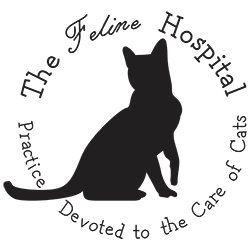Feline Dentistry

One of the most vital parts of cat ownership is keeping our furry friends up to date with preventative medicine in order to avoid bigger health issues down the road. Just like in humans, the dental health of our feline companions plays a significant role in their overall health, but sadly we can’t just ask our cats to pick up a toothbrush.
The Cornell Feline Health Center estimated in 2015 that between 50-90% of cats older than four years have some form of dental disease. This can range from gingivitis (inflammation of the gums which, if severe, can be painful) to tooth resorption (an often painful condition where the hard layer of tooth below the enamel, called dentin, erodes over time) to periodontitis (a more advanced form of dental disease involving significant inflammation and recession of the gums). You may have heard of one of these conditions referred to as dental disease or as periodontal disease, which refers to any disease outside of the tooth.
While the three types of dental disease mentioned above are some that we see most commonly, there are countless other conditions that fall under the umbrella of dental or periodontal disease, and many conditions that can arise as a result of or related to prolonged disease.
So it is no wonder that at The Feline Hospital, we believe that prevention is often the best medicine – especially where dental disease is concerned. Prevention can be supplemented in the form of home care, but may also warrant professional dentistry services.
Dentistry at The Feline Hospital takes many different forms, and the type of dental care that each patient needs will be unique to that patient. A young cat with very little plaque and tartar on the teeth may only need a cleaning every few years, while older cats that have not had regular dental cleanings or cats that are genetically predisposed to less healthy teeth and gums may need a more extensive dental plan.
Your cat’s dental plan at The Feline Hospital may include any of the following:
- Pre-anesthetic lab work to screen your cat and determine that he or she is a good candidate for anesthesia and to help us mitigate and reduce any possible adverse effects of anesthesia.
- Routine prophylaxis under general anesthesia, during which your cat’s teeth will be professionally cleaned, scaled, and polished, and any problem areas will be identified on your cat’s unique dental chart.
- Full mouth digital dental x-rays.
- Surgical extraction of any diseased teeth as determined by your veterinarian.
- Pain management so that your cat is comfortable throughout the procedure, when waking up, and when he or she goes back home with you.
- A no-charge dental recheck appointment (usually one month after the dental) to ensure that your feline companion is on a smooth road to recovery.
All cats under anesthesia at The Feline Hospital are monitored throughout to ensure the highest level of safety for the patient. The technician assisting with your cat’s anesthetic procedure is trained to monitor heart rate, respiratory rate, blood oxygen level, blood pressure, body temperature, and level of sedation and make adjustments to your cat’s anesthetic protocol as needed.
